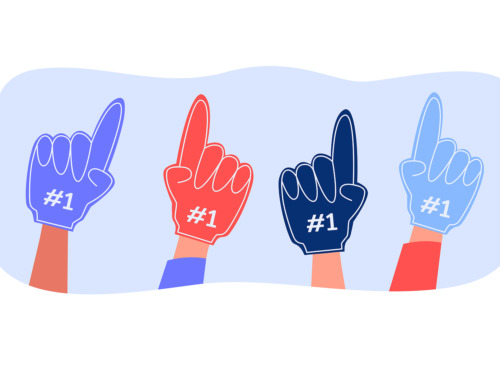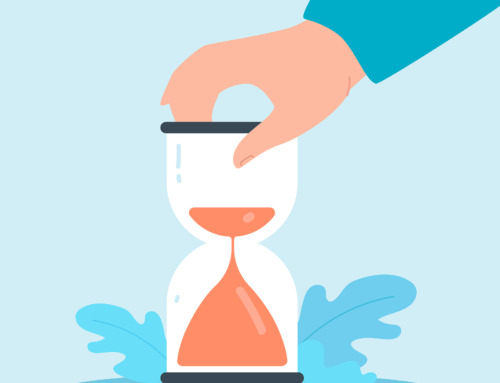Do we ask enough questions when we pitch a new client?
In a recent article I talked about how to assert some control over a new business pitch. Not in an aggressive, “give it to me” kind of way. Rather more like the skilled push-and-pull of a pair of well-matched tango dancers.
One way to exert control is by leveraging your knowledge of the client, but knowledge is the result of inquiry. And, inquiry requires that you ask some questions.
Maybe this comes naturally to some of us more than others.
Like me. I’m a questioner by nature. I confound my life partner by my need for answers to what he thinks are the most inconsequential questions. For instance, he’ll chat with me over dinner about one of his clients coming back from a vacation and my natural inclination is to ask “was the weather good?” Or “did their son enjoy SCUBA diving for the first time?”
His response, more often than not, is “I have no idea. I would never even have thought to ask that question…”
I guess I just like to know stuff about people and things!
Maybe that’s helped me become a good business development person. Maybe we can make you a better business developer too by sharpening your questioning skills.
I have a very simple framework I use with agencies when they hire me to help them win a new business pitch. It’s based on the “5 Ws (and an H)” most of us have been familiar with since grade school—who, what, why, where, when, and how. It’s a fluid tool – the questions are always adapted to the situation, but the intention is always the same:
-
To get my clients to simply pause for a moment (hard to do, I know, when you’re often given impossibly hard deadlines) before rushing headlong into jury rigging the last credentials deck or RFP response you submitted.
-
To gather intelligence and get a bigger picture so that they can make smarter decisions.
START WITH “WHAT”
“What” questions are great for getting the ball rolling. And, in fact, many of them will be answered by the pitch brief, if there is one:
“What is the problem to be solved?”
“What are the desired outcomes?”
“What are the services being asked for?”
“What is the approval process?”
“What is the budget? What is the timeline?”
Budget, authority, needs, timeline. They’re obviously important, but they keep you on the surface. They’re questions asked by order-takers and get you only so far.
THE POWER OF WHY
If a client briefs you well, then they’ve likely shared deeper concerns and motivations that “what” questions don’t get at. But clients aren’t always that good at asking the “why” questions of themselves.
Why? Because they don’t have to! The power dynamic is in their favor. But also because self-reflection and self-investigation isn’t that easy (that’s why we pay therapists and coaches). If you want to give yourself the edge in a new business pitch, it behooves you to take on that role of investigator.
“Why” questions have the power to get you to the bottom of an issue and to reveal insights that only you may be privy to because you asked the questions and the other agencies did not. Questions like:
“Why is the problem a problem?”
“Why are you interested in talking to us?”
“Why now?”
The amazing thing about “why” questions is they beget more whys. In fact there’s an interrogatory technique called the 5 Whys (I’ve referred to it before, most recently as a tool in writing great case studies). The premise is that it takes repeating the question “why” five times before you get to the root cause of a problem. Each answer forms the basis of the next “why” question.
Now, this takes some practice, and the flaw of this technique is that different people doing the questioning may go down different paths. It’s not necessarily a repeatable process that leads to the same answer. But, I don’t think that’s a reason not to do it. Asking why will always yield you more information than you started with, information that will shape your pitch for the better.
By the way, asking yourself your own set of “why” questions, like “why is this opportunity important to us?” is equally useful in clarifying your purpose and setting your intention to win.
BE CLEAR ON THE WHO
Have you ever been part of a pitch when you realized way too late that the person you thought was the decision-maker only has the authority to recommend an agency? Or you’re told the chief client contact won’t actually be attending the final presentation you’ve put your heart and soul into?
Maybe you didn’t ask the right “who” questions, like:
“Who is on the agency selection committee?”
“Who will we be meeting with?”
“Who are the stakeholders? And what are their roles in the pitch?”
Those questions may sound like they’re asking the same thing, but they’re not. Maybe I’ve just dealt with too many curve balls in my career, but I never take anything for granted. And asking smart “who” questions has always helped me avoid unfortunate situations like the ones I just described.
Of course, the magic happens when you follow up a “who” question with a “why” question:
“Why are there so many digital roles represented for a brand strategy assignment?”
“Why is the CMO’s name absent?”
“Why is the only point of contact a procurement person?”
A simple list of client names tells a story. It offers clues as to who has more riding on the success of this assignment than others. It tells you how the marketing team is structured. It hints as to who is really in control of the pitch. Sometimes you can ask the client these questions directly to fill in the missing plot details, but it’s a story you often have to interpret yourself. Just don’t neglect to do it and then refer back to that story as you develop your pitch.
KNOW-HOW
Like “why” questions, “how” questions offer you an opportunity to get a deeper understanding of the client’s level of commitment to the project and how well they’ll perform as a partner.
“How will we know if we’re successful? How will you measure success?”
“How do you typically work with and manage your agency partners?”
“How will your team be willing to adapt their roles or methods, if at all, in order to work more effectively with us?”
These help you suss out dysfunctions within the client team and reveal red flags that may not otherwise make themselves known through “what”, “who”, and “why” questions. It also helps you to understand the client’s level of marketing sophistication and whether they’ll be approaching this relationship as a partner, a despot, or someone who never returns your calls or responds to your emails.
BEYOND WHERE AND WHEN
“Where” and “when” questions are more logistical but nonetheless important. They define the rules of the game the client is inviting you to play and you have to understand them to decide whether to engage or politely decline to play.
“When do we need to submit our proposal?”
“Where will we be making our final presentation?”
“When will we have the opportunity to interact with you and your team?”
These are also often answered in the brief or RFP, but not always. And, when the answers seem unreasonable, arbitrary, counter-productive, or downright abusive, you bring back the magic question, “why?”
“Why are you restricting us to only 8 slides for our final presentation?”
“Why do you prefer us to communicate only through procurement rather than with the team who we would be working with?”
“Why is there the need to get you a proposal in an impossibly short amount of time?”
In my experience, there is usually an underlying cause for an unreasonable-sounding request. A limit of eight slides for your final presentation may seem ludicrous, until you find out that the last time the client did an agency review, each finalist prepared a dump truck’s worth of content that the review committee found impossible to follow, and in most cases the agencies had to rush through to finish their presentations or they went long by 30 minutes, leaving no time for the clients to ask questions.
Can you blame them for trying to avoid such an unsatisfying situation? And now that you understand the reason behind it, does it allow you to offer an alternative from a position of empathy?
GOOD QUESTIONING IS SIMPLE, BUT NOT ALWAYS EASY
What, why, who, when, where, and how. The framework is simple, but not necessarily easy because questioning leads you along a path unknown.
Becoming a good questioner takes confidence and practice. You learn through experience how to read a client as well as how to read between the lines of a client’s brief.
You can shorten the time to mastery by hiring a coach like me (shameless plug, I realize, but if you’re curious, let’s schedule a call). Or, if you’re an agency leader who wants your team to hone their questioning skills, consider having them trail someone more experienced. Maybe that’s you. Allow them to watch how you do it and to discover their own voice.





